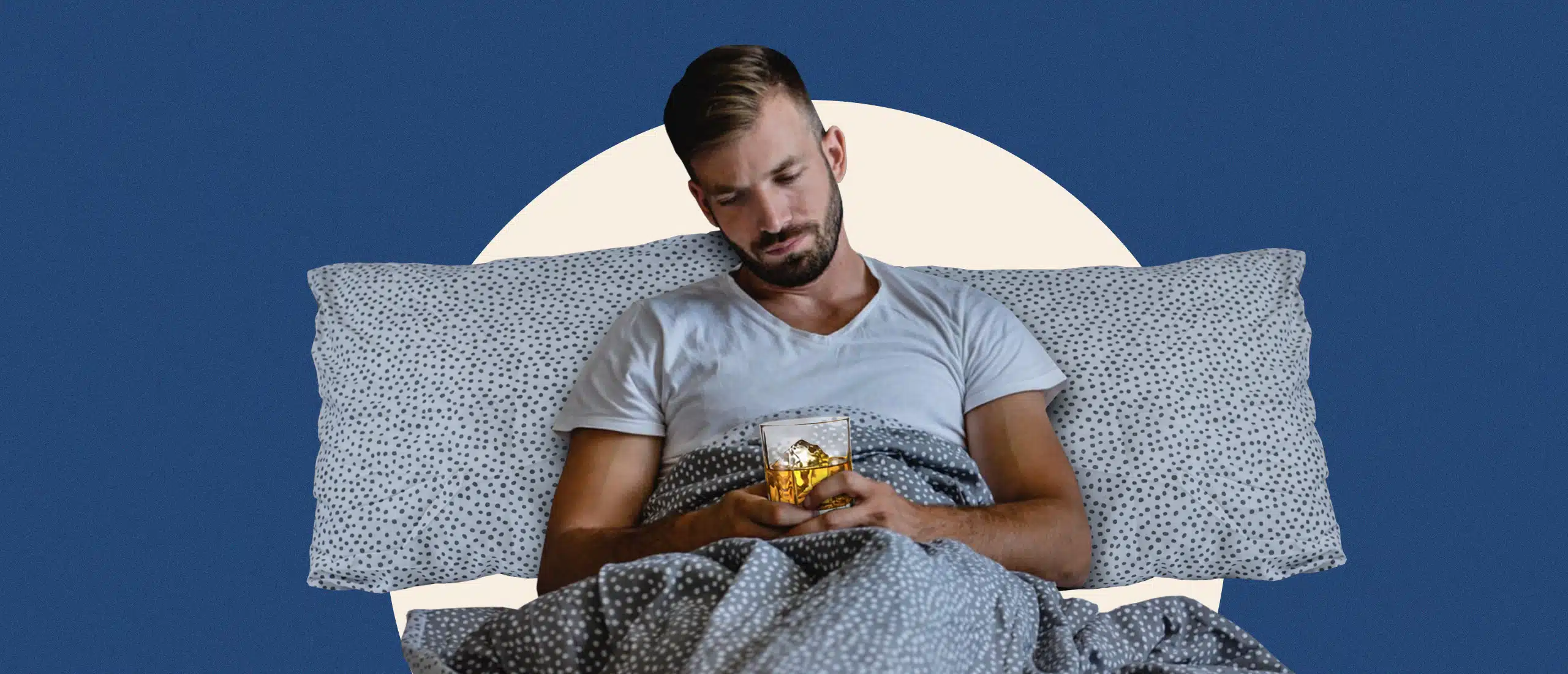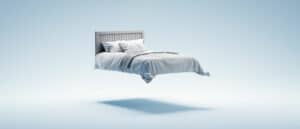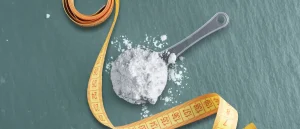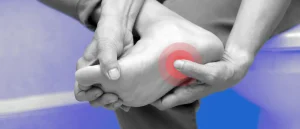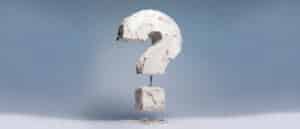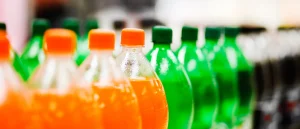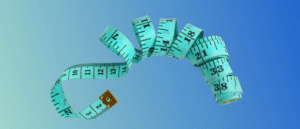Why Alcohol Messes With Your Sleep (and What to Do About It)
Fast Facts
- Alcohol has both stimulant and sedative effects, which makes it difficult to fall (and stay) asleep for most people.
- Compared to naturalistic sleep, alcohol actually behaves like anesthesia and quite literally knocks you unconscious from wakefulness.
- Alcohol messes with your REM cycle, the sleep stage linked to memory, mood, and emotional processing, so it’s more likely to leave you irritable, anxious, and struggling to concentrate the next day.
If you’re among the two-thirds (66 percent) of Americans that consumed alcohol in the last year (1), then you may have turned to the occasional nightcap for a little help falling asleep.
The truth is, alcohol isn’t the sleep aid many of us think it is. While it’s true that a few whiskeys may have you dozing off more quickly, in the first stages of sleep, your nightcap wreaks havoc in your body like a couple of burglars on the loose. They rip through your system, disrupting everything in their path, and in the wake of their heist, they hijack REM sleep—bad news for memory, mood, and focus—and wake you from your booze snooze in a groggy daze.
Let’s look at the science behind how sleep is affected by drinking alcohol and better tactics for truly restorative sleep.
What Alcohol Does to Your Body
When you drink alcohol, it goes through the same process as any other food or drinks you consume. It travels down the esophagus and into the stomach where about 20 percent of the alcohol is absorbed through the stomach lining and quickly enters the bloodstream. The less food you have in your stomach, the faster it travels and raises blood-alcohol levels.
Whatever doesn’t make its way into the bloodstream via the stomach then travels to the small intestine (SI) where it passes through the walls of your SI into your blood, and then heads for the liver, the body’s master detoxification organ.
Once in the liver, an enzyme called alcohol dehydrogenase (ADH) metabolizes the ethanol, which is the main ingredient and type of alcohol in, well, alcohol. When ADH breaks down the ethanol molecules, its structure changes and it becomes acetaldehyde, a toxic, carcinogenic substance. From there, another enzyme, aldehyde dehydrogenase turns the acetaldehyde into a less toxic substance called acetic acid.
Once it becomes acetic acid, it’s ready to break down into carbon dioxide and water. This taxing process breaks down about 90 percent of the alcohol you consumed to clear it out of your system (2, 3).
Alcohol Effects at a Glance
- Alcohol wreaks havoc on REM sleep, the crucial sleep stage for memory, mood, and focus.
- About 20 percent of the alcohol is absorbed through the stomach lining and quickly enters the bloodstream.
How Does Alcohol Make You Drunk?
Because the liver can only process so much alcohol at a time—about one standard drink per hour—as you drink, alcohol builds up in the bloodstream and eventually makes its way to the brain.
This is where the effects of imbibing start to kick in. Once it hits the central nervous system, alcohol—which is classified as a drug—has a sedative effect. That’s why, after a drink or two, you begin to feel relaxed, inhibitions are lowered, and you may start to feel tired.
“Alcohol is a depressant which causes your brain to slow down,” explains Registered Dietitian Nutritionist Erin Macdonald, RDN.
Why You Get Drunk
- The liver can only process one standard drink per hour.
- Alcohol is a drug classified as a depressant that causes your brain to slow down.
How Does Alcohol Affect Sleep?
“While alcohol makes you fall into a deeper sleep in the first few hours of your slumber, it also interferes with REM sleep,” says Macdonald.
“REM sleep is the restorative stage of sleep that you experience primarily in the later part of our cycle. During REM sleep, you dream and consolidate memories. Inadequate REM sleep can lead to daytime drowsiness and trouble concentrating. Plus alcohol is a diuretic, causing more frequent urination during the later part of your sleep.”
It’s important to note that while some report difficulty getting to sleep after drinking, others have no problem. This is likely due to the fact that alcohol has both stimulant and sedative effects (4) and depending on the individual and many factors such as gender, age, amount of drinks consumed, body chemistry, tolerance, and more, it’s difficult to understand why some become stimulated while others do not.
Do You Sleep Worse When You Drink?
Sadly, yes. What is consistent from one person to the next, is the science of how alcohol diminishes sleep quality (5)—regardless if you struggle to fall asleep or not after drinking it.
3 Ways Alcohol Affects Sleep
1. Alcohol doesn’t induce natural sleep
Alcohol is not a sleep aid. It’s a toxin. In his best-selling book Why We Sleep, world-renowned sleep scientist Matthew Walker, PhD explains that compared to naturalistic sleep, alcohol, a sedative, actually behaves like anesthesia and quite literally knocks you unconscious from wakefulness (6).
2. Alcohol interrupts the four stages of sleep
Even though you may not physically wake, or even remember waking up in the morning, alcohol, like other drugs, has been shown to fragment the stages of sleep (7). If you were to analyze your sleep on an EEG graph, you’d see all kinds of non-continuous sleep activity (8) throughout the night, which is why most people never truly feel rested after a night of drinking (6).
3. Alcohol is the most disruptive to REM sleep
Again, REM is our slow-wave, deeply restorative, and emotionally supportive stage (9). Walker refers to REM as “overnight therapy” and “emotional first-aid” because of its powerful influence on emotional reactivity, anxiety, fear, and mood. It also impacts memory and learning (10). Meaning that drinking alcohol as a sleep aid is more likely to leave you irritable, anxious, and struggling to concentrate the next day.
Alcohol and Sleep
- Alcohol is not a sleep aid—it’s a toxin.
- Alcohol has been known to fragment stages of sleep.
- Alcohol consumption is more likely to leave you irritable, anxious, and struggling to concentrate the next day.
How to Fall Asleep After Drinking
So, what do you do if you need to ensure a good night’s sleep after one too many beverages? Here are some simple tips to mitigate alcohol’s effect on sleep.
Before you drink
You’ve heard this one before but it’s no old wives’ tale: Avoid drinking on an empty stomach—it leads to intoxication three times faster (11) and quickly overwhelms your liver, which can only process alcohol at a single speed. Eat a well-balanced meal containing protein, carbs, and fat pre-drinking to slow alcohol absorption.
While you drink
Cut yourself off early to eliminate most of the alcohol from your system before you sleep. And drink one glass of water for every alcoholic beverage you have to give your liver a chance to catch up in the detoxification process.
Before bed
Rehydrate with more water when you get home and consider another well-balanced snack containing proteins and complex carbs, like Greek yogurt and trail mix or whole-grain toast with nut butter. Pro tip: If you know you’re heading out for drinks, it’s smart to pre-plan your bedtime snack so you’re not tempted by greasy fast food on the way home.
Replenish vitamins and minerals with a low-sugar electrolyte drink or tablet and a B-complex vitamin. But, contrary to popular belief, you should actually avoid painkillers like Tylenol or Advil, because they further tax your hard-working liver.
When You Need to Sleep
- Avoid drinking on an empty stomach as it leads to intoxication three times faster.
- Drink a glass of water for every alcoholic beverage and cut yourself off well before bedtime.
- Drink water and eat a well-balanced snack containing proteins and complex carbs before bed to replenish vitamins and minerals.
Which Supplements Are Best for Sleep?
Melatonin
Just 1mg of melatonin, “Helps to regulate your sleep-wake cycles and is not used as a sedative,” Macdonald explains. “Smaller doses are better than larger doses. As you age, you produce less melatonin, and providing a little to your body can help.”
But avoid taking melatonin if you’ve consumed alcohol. Even though it’s a natural supplement, it’s not safe (12) to consume alcohol and melatonin together as it could lead to dizziness and drowsiness.
Magnesium
Magnesium is another sleep-support all-star. “Magnesium glycinate is the king of minerals as it has a role in more than 350 chemical reactions in your body,” says Macdonald. “This particular form of magnesium helps promote neuromuscular relaxation. Take 300 mg about one hour before bed.”
Always check with your healthcare provider before starting a new supplement.
5 R.D.-Recommended Habits for Better Sleep
Now that that’s settled, if you’re still looking for healthy ways to level up your sleep, try Erin Macdonald’s top tips below.
- Power down all of your electronics at least an hour before bed as the blue light emitted from devices (TV, cell phone, tablet) suppresses the production of melatonin in the brain, which will interfere with your ability to fall asleep.
- Instead of binge-watching your favorite show or scrolling through social media, dim the lights and enjoy a mug of chamomile tea.
- Take a hot bath filled with Epsom salts (which contain magnesium, a mineral known for relaxing muscles) and a few drops of lavender essential oil.
- Slip into bed in a cool room (ideally 65-67 F) as your body will fall asleep more quickly in this temperature range.
- While in bed, try a few rounds of 4-7-8 breathing, which will slow your heart rate and promote a sense of calm. Inhale through your nose for a count of four, hold the breath for a count of seven, and slowly exhale through your nose or mouth for a count of eight. Repeat for a total of four to eight cycles.
FAQs
What are the four stages of sleep?
There are four stages of sleep and three of those are considered “non-REM” or NREM stages, referred to as N1-N3. Rapid eye movement or REM, is the fourth stage, and arguably the most well-known. Each phase takes approximately 90 to 120 minutes to complete, which is why it is recommended to get 7 to 8 hours a night, which allows the body to cycle through every phase to completion, twice.
N1
The first stage of sleep, also known as light sleep, is the short transition period between wakefulness and sleep. It lasts less than 10 minutes and in this phase, your body relaxes, body temperature drops, and melatonin is released. It’s also the stage where you might experience a muscle twitch or a brief feeling of falling. These are called hypnic jerks and sleep starts and are totally normal as your body and mind relax into a sleep state.
N2
This is the longest sleep stage where you spend about half of your entire night’s sleep. In this stage, sleep spindles occur, which is your top brain (cortex) engaging with your center brain in order to consolidate short-term memories to long ones, remember your dreams, and more. This is also the stage that K-complexes occur, which are your sleeping brain waves that are monitored on an EEG scan when analyzing sleep in a test.
N3
N3 is known as the slow-wave sleep stage—the deepest and most restorative of the sleep stages. Here, eye movement stops completely and heart, breathing, and brain activity reach their lowest point of all four stages. In N3, hormones are released that help with appetite control and blood flows to the muscles for recovery. It’s the most important sleep stage for physical growth, repair, and immunity.
REM
The last stage in the sleep cycle, REM, is also the lightest. Aside from N1, this is the stage where you can be the most easily roused. Here, muscles become temporarily paralyzed but eye movement resumes, breathing and heart rate speed up, and the brain is very active. Most of your dreams occur in this stage but this is also the stage that contributes to emotional processing, mood, memory, and more.
What stage of sleep is most disrupted by alcohol?
Your REM sleep stage is most affected by alcohol consumption. It’s also the most crucial in terms of memory and learning, which is why you can feel foggy and unable to focus the day after drinking.
The Bottom Line
While consuming alcohol may have sedative effects, causing you to fall asleep more quickly, the body recognizes it as a toxin and goes into overdrive trying to expel it from your system. This process messes with your REM cycle the most, and is the reason why you may feel groggy and irritable the next morning, even if you logged eight or more hours of sleep.
References
1. “Products – Data Briefs – Number 374- August 2020.” CDC, www.cdc.gov/nchs/products/databriefs/db374.htm. Accessed 16 June 2022.
2. Paton, Alex. “Alcohol in the body.” https://www.ncbi.nlm.nih.gov/pmc/articles/PMC543875/
3. Alcohol Questions and Answers | CDC. 2022. https://www.cdc.gov/alcohol/faqs.htm
4. Hendler, Reuben A et al. “Stimulant and sedative effects of alcohol.”
https://pubmed.ncbi.nlm.nih.gov/21560041/
5. Suni, Eric. “Stages of Sleep.” 2022. https://www.sleepfoundation.org/stages-of-sleep
6. “Sleep Scientist Warns Against Walking Through Life ‘In An Underslept State’ | UC Psych.” https://psychology.berkeley.edu/news/sleep-scientist-warns-against-walking-through-life-underslept-state
7. Gordon, Harold W. “Differential Effects of Addictive Drugs on Sleep and Sleep Stages.” 2019. https://www.ncbi.nlm.nih.gov/pmc/articles/PMC6688758/
8. Alcoholism: Clinical & Experimental Research. “Pre-sleep drinking disrupts sleep.” 2015.
https://www.sciencedaily.com/releases/2015/01/150117104306.htm.
9. Tempesta, Daniela et al. “Sleep and emotional processing.” 2018.
https://pubmed.ncbi.nlm.nih.gov/29395984/
10. “Sparse Activity of Hippocampal Adult-Born Neurons during REM Sleep Is Necessary for Memory Consolidation.” 2020. https://www.sciencedirect.com/science/article/pii/S0896627320303548
11. Paton, Alex. “Alcohol in the body.” 2005. https://www.ncbi.nlm.nih.gov/pmc/articles/PMC543875/
12. Bayba, Michael. “Is It Safe to Mix Alcohol and Melatonin?” 2022. https://alcoholrehabhelp.org/interactions/melatonin/



